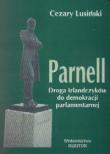
|
« Społeczeństwo Overpopulation: a Threat Caused by Religion [1] When do people in a crowded theater begin to panic? Not until fire breaks out and they see that paths to the exits are crowded, threatening their safety. So it is with the population issue. Only when the effects of population growth begin to affect Americans directly, do we take serious notice. The tragedy of 9/11 in 2001 forced us to recognize the dangerous link between excess populations and terrorism. Yet this disaster might never have happened had we heeded the warning of the United States Security Council in 1979, when they determined that world population growth seriously threatened the security of all nations, including our own. [ 1 ] And had we pursued the recommendations of National Security Study Memorandum 200 (NSSM 200) to help developing nations around the world control their numbers. While the highest echelons of the U.S. government back in the mid-1970s acknowledged the global population crisis and sought to address it, sectarian special interests managed to derail government efforts by pursuing their own agendas. One of the results can be seen in the fact that Hispanics currently make up almost 13% of the population, much of it due to immigration from our southern neighbors. [ 2 ] Hispanic women-many of them undocumented immigrants-are reported to have the highest birthrate with a fertility rate of 3.16 children per woman. [ 3 ] This trend was foretold by population scientist Stephen D. Mumford who warned about not controlling our immigration in his 1984 book, American Democracy & The Vatican: Population Growth & National Security. Pope John Paul II, during his 1979 visit to the U.S., had campaigned for the right of illegal aliens to migrate at will to our country. [ 4 ] Mumford contended that the Catholic Church is pitted against the national security interests of the United States by its efforts to further its own power with increasing numbers. [ 5 ] This intention is confirmed by Fr. Richard J. Ryscavage, executive director of the Migration and Refugee Services of the U.S. Catholic Conference, in a November 8, 1992 article in the National Catholic Register, where he noted that „[..] We are in the middle of a huge wave of immigration .. and most of them are Catholics… It's the key to our future and the key to why the church is going to be very healthy in the twenty-first century." [ 6 ] By the mid-1960s America had become increasingly aware of the world population problem. The invention of the contraceptive pill in 1960 stimulated broad public debate on birth control, as did Paul Ehrlich's book The Population Bomb [ 7 ] and Garret Hardin's essay "The Tragedy of the Commons," published in the journal Science that same year. [ 8 ] Even mainstream religious denominations called for a bold response to the problem. In 1965 the General Assembly of the Presbyterian Church urged „the government of the United States to be ready to assist countries who request help in the development of programs of voluntary planned parenthood as a practical and humane means of controlling fertility and population growth." By 1971, it recognized that „the assumption that couples have the freedom to have as many children as they can support should be challenged. We can no longer justify bringing into existence as many children as we desire. Our corporate responsibility to each other prohibits this." And in 1972, the Presbyterians called on governments „to take such actions as will stabilize population size. ..We who are motivated by the urgency of overpopulation ... would preserve the species by responding in faith: Do not multiply-the earth is filled!" [ 9 ] When Pope John XXIII created the Commission on Population and Birth Control, it was hoped that the Roman Catholic church would change its long-standing opposition to contraceptives. But according to Thomas Burch, one of the members of the Commission, they were asked by Pope Paul VI two questions: (l) Suppose the Vatican changed its mind on contraception. What can we do to present this in such a way that the Church will not lose its moral influence over people? And (2) Suppose the Vatican changed its mind on these issues [population and birth control]. How can we preserve our [the Church's] influence over the marital behavior of individuals?"Although a majority of both the Commission and a subsequent group of Cardinals and Bishops voted to make the change, the Pope, in 1968, issued the encyclical Humanae Vitae, retaining the ban against „artificial" contraception and abortion. Thus the authority of the Church was preserved. [ 10 ] President Richard Nixon set in motion a broad range of government actions to address the problem of overpopulation. Among these was the creation of the Rockefeller Commission which made over seventy recommendations, including establishing population education programs in the schools, sex education, especially through the schools, and contraception and abortion available for all, including minors, at government expense if necessary. [ 11 ] These bold suggestions were immediately challenged. When Rockefeller was asked later why no concrete program resulted from the Commission's recommendations, he responded: "The greatest difficulty has been the very active opposition by the Roman Catholic Church through its various agencies in the United States. [ 13 ] After his successful reelection in 1974, President Nixon made another effort, ordering a study done on the „Implications of Worldwide Population Growth for U.S. Security and Overseas Interests." This was a joint study by various government agencies that resulted in National Security Study Memorandum (NSSM) 200. [ 13 ] After many revisions, its recommendations were endorsed by then-president Gerald Ford in National Security Decision Memorandum (NSDM) 314. [ 14 ] The policy set forth in NSDM 314 has never been officially rescinded. Somehow, both of these critical reports were stamped „classified" and buried with a notation, „this document can only be declassified by the White House." Although declassified on July 3, 1989, they did not come to public attention until Mumford saw a reference in a 1991 issue of the National Catholic Register and acquired a copy. According to him, NSSM 200 had rather accurately predicted the effects of world population growth on the environment, living standards, and U.S. security interests. It stated that „If future numbers are to be kept within reasonable bounds, it is urgent that measures to reduce fertility be started and made effective in the 1970s and 1980s." [ 15 ] Had the recommendations of this report been carried out, we would have a much more manageable world today. Instead, sectarian special interests were allowed to derail those intentions. On August 31, 1976, President-elect Jimmy Carter met with 15 Catholic leaders who pressed Carter to de-emphasize federal support for family planning in exchange for Catholic support for his presidential race. When Carter became president, he put two federal agencies with family planning programs under Catholic control: The Agency for International Development (AID) and the Department of Health, Education and Welfare. The latter department ignored the Food and Drug Administration's recommendations for approval of the contraceptive, Depo-Provera, and specifically directed that it not be approved. [ 16 ] In 1975, American Catholic Bishops had issued their Pastoral Plan for Pro-Life Activities which laid out a detailed blueprint for infiltrating and manipulating the American democratic process at the national, state, and local levels. The plan details a three-pronged attack, one devoted to each of the three branches of our federal government: legislative, judicial, and administrative. [ 17 ] Abortion was the issue chosen to galvanize the movement, as proposed by Jesuit priest Virgil Blum in a 1971 America magazine article. [ 18 ] The plan also called for the creation of a broad-based popular movement which emerged between 1976 and 1980 and became known as the "New Right Movement." Then in 1980, according to Mumford, the Vatican used this infrastructure to help elect a president. The Reagan administration, overwhelmingly the most Catholic in American history, proceeded to further the agenda of the Vatican. [ 19 ] First, Reagan took the unprecedented step of granting formal diplomatic recognition to the Holy See, headquarters of the Catholic Church at the Vatican, and shortly thereafter, in 1984, instituted the "Mexico City policy," reversing U.S. commitment to international family planning. He withdrew funding from both the U.N. Population Fund and the International Planned Parenthood Federation, [ 20 ] a policy later endorsed by the first President Bush, and now reinstated under George W. Bush.
Przypisy: [ 1 ] Stephen D. Mumford, American Democracy & The Vatican: Population Growth & National Security(Humanist Press, POB 146, Amherst, NY 14226, 1984) p. xiii. [ 2 ] "Hispanics largest minority maybe," Denver Post, January 22, 2003 [ 3 ] "When numbers matter," Denver Post editorial, January 9, 2003 [ 4 ] Mumford, American Democracy, p. 27 [ 5 ] Ibid, p. xiii [ 6 ] National Catholic Register, Nov 8, 1992. Quoted by Stephen D. Mumford , "Vatican Influence on U.S. Immigration Policy," Free Inquiry, Spring 1994: p. 25 [ 7 ] Paul R. Erlich, The Population Bomb (New York: Ballantine Books, 1968). [ 8 ] Garrett Hardin, "The Tragedy of the Commons," Science 162 (1968): pp. 1234-1248 [ 9 ] R. Beck, "Religions and the Environment: Commitment High until U.S. Population Issues Raised," The Social Contract 3 (1993): pp. 76-89. Quoted in Stephen D. Mumford, "Overcoming Overpopulation," Free Inquiry, Spring 1994: p. 23 [ 10 ] Stephen D. Mumford, The Pope and The New Apocalypse: The Holy War Against Family Planning, published by the Center for Research on Population and Security, P.O. Box 13067, Research Triangle Park, NC 27709: p. 23 [ 11 ] President's Commission on Population Growth and the American Future, Population and the American Future (Washington, D.C., 1972). Quoted in Mumford, "Overcoming Overpopulation," Free Inquiry, Spring 1994: p. 23. [ 13 ] National Security Council, National Security Study Memorandum 200 (Washington, D.C. , April 24, 1975). [ 14 ] National Security Council, National Security Decision Memorandum 314 (Washington, D.C., November 26, 1975). [ 15 ] "The Strange Case of the Missing Population Report.," Voice of Reason, The Newsletter of Americans for Religious Liberty: p. 1 [ 16 ] Ibid., p. 5. [ 17 ] "Overcoming Overpopulation: The Rise and Fall of American Political Will," Stephen D. Mumford,Free Inquiry, Spring 1994: p. 27 [ 18 ] Virgil C. Blum, „Public Policy Making: Why the Churches Strike Out," America 124, no. 9 (1971): pp. 224-228.Quoted in Stephen D. Mumford, "Overcoming Overpopulation," Free Inquiry, Spring 1994: p. 27 [ 19 ] Mumford, American Democracy, p. xiv [ 20 ] "The Strange Case of the Missing Population Report.," Voice of Reason, The Newsletter of Americans for Religious Liberty: p. 5 « Społeczeństwo (Publikacja: 16-05-2003 Ostatnia zmiana: 21-09-2003)
str. 2441 |
|||||||||||||||||||||||||||||||||||||||||||||||||||||||||||||||||||||||||||||||||||||||||||||||||||||||||||||||||||||
| [ Regulamin publikacji ] [ Bannery ] [ Mapa portalu ] [ Reklama ] [ Sklep ] [ Zarejestruj się ] [ Kontakt ] Racjonalista © Copyright 2000-2018 (e-mail: redakcja | administrator) | ||



